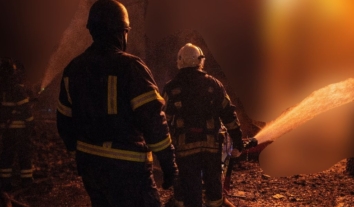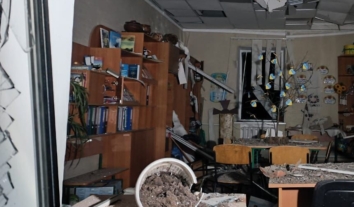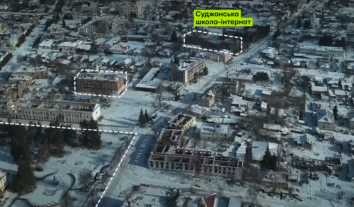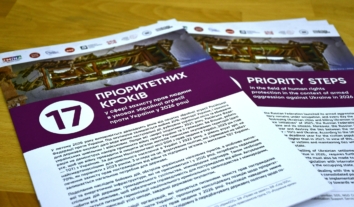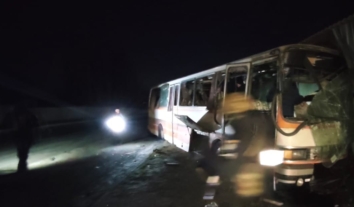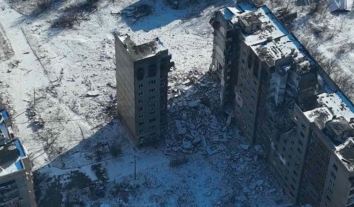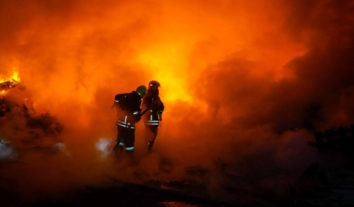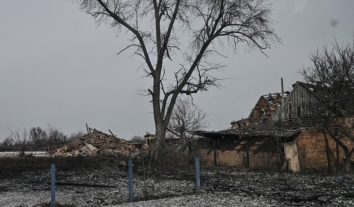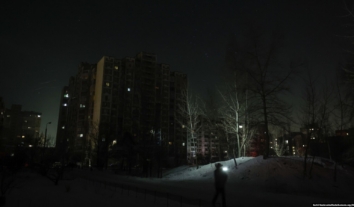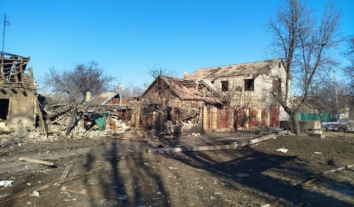Most independent journalists leave Donetsk – human rights activists
The reporters experience threats and violence on part of separatists as well as representatives of the Ukrainian volunteer battalions in some cases.
This is stated in the report “Freedom of expression in the ATO area” on the results of the monitoring visit of the Ukrainian Helsinki Human Rights Union.
The human rights activists visited Kramatorsk, Kostiantynivka and Mariupol in Donetsk region on September 15-19 and met with representatives of the local media.
In particular, Olena Maliutina, the employee of the television and radio broadcasting company in Donetsk, moved from Donetsk to Kramatorsk. In 2014, she was the chief of the information department at the Donetsk Regional State Administration. She said that the large complex in Donetsk housing several media outlets, including the Donbas, the Evening Donetsk and other, was seized in March 2014. Several independent journalists were attacked, some editors were summoned “to a conversation.” Some have returned to Donetsk, but almost all have left the city.
There have been several attempts to seize the newspapers in Horlivka, Donetsk region, now belonging to the “DPR”. In Debaltseve, Donetsk region, the issue of removing an editor in chief was discussed, as she had taken up strong stand and then left the town. In Slovyansk, an editor in chief was held captive by the separatists in Donetsk. A journalist from TRC “Donbas” was held in the basement in summer.
“They came to visit me twice. The first time I was lucky as I was not in the office. The second time, on July 25, when they took my colleague and director of the domestic policy department, I was lucky again. I went from Mariupol, when my colleague called and said that they came at work to see me. They took away everything. I did not come back then. Before that incident, we had worked sometimes remotely, sometimes came to work. After that, I did not appear in the office. However, we worked to the last,” Olena Maliutina said.
The human rights activists point out that all the journalists, whom they had opportunity to talk with, noted the influence of the illegal armed groups during occupation, mostly in form of threats and interference in journalistic activities. In addition, there have been such ways of influence as attacks, searches, threats to families. The vast majority of journalists have left the occupied territory. Those, who have remained do not feel safe and use the principle of “self-censorship.”
“After the temporarily occupied territories had been returned to Ukraine, according to journalists in the conflict zone, they have not been always able to exercise freedom of speech in full. Some have reported on telephone threats, threats via social networks due to discontent with articles, referring to the fact that some public servants, who collaborated with the separatists, are still in office. Most journalists do not trust in the ability of law enforcement agencies to ensure their safety. At present, almost all the media experience economic difficulties, therefore, being very vulnerable to economic pressure,” the human rights activists note.
According to them, the journalists critical of the Ukrainian authorities, the ATO, the Armed Forces of Ukraine and volunteers are sometimes being abducted, beaten and threatened physical violence by members of the Ukrainian volunteer battalions, public activists, people with peculiar notion of justice.

